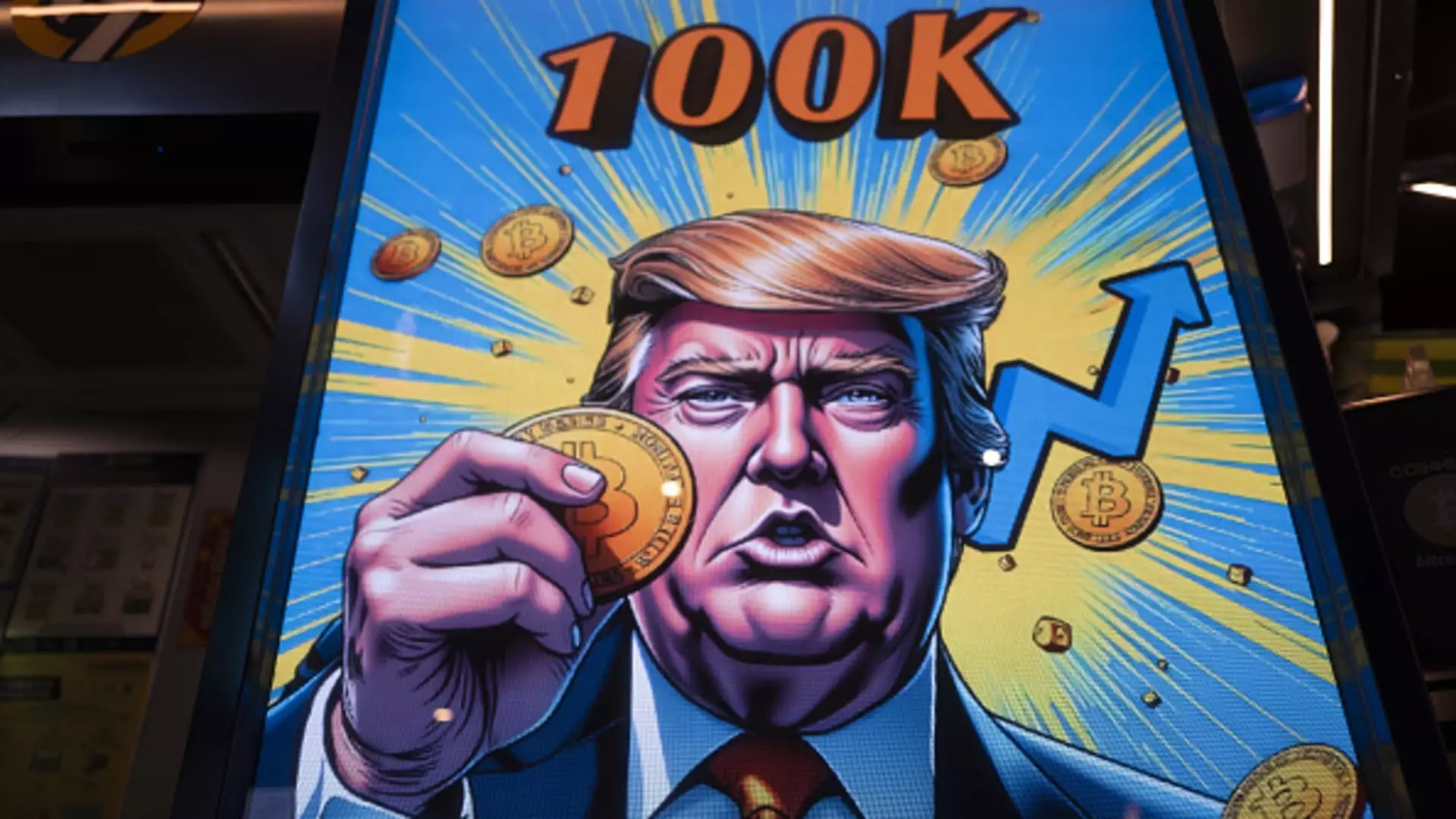The rise of the $TRUMP meme coin has brought forth a multifaceted conversation that intricately weaves together themes of capitalism, celebrity, and the political landscape in the United States. Originally launched in January, just prior to the presidential inauguration, this meme coin has seen staggering highs and disheartening delays. The delayed release of key tokens—adding an additional three months to the wait—has triggered questions well beyond mere economics, entering the realm of ethics and governance. For many, $TRUMP represents everything that has become particularly disillusioning about money in the Trump era: it exemplifies a kind of financial freedom that is anything but liberating.
By keeping 80% of its supply locked up in a sophisticated vesting schedule, the $TRUMP venture casts a long shadow over the notion of fair market practices. Is there any true view of financial equality when a project is designed to essentially pocket wealth for insiders first? The notion that your economic future can be placed in the hands of political figures and their close associates is troubling. It raises important questions about who really benefits from such crypto projects. Those bold enough to invest their money in $TRUMP are often left at the mercy of insiders who seem to play a different game altogether.
The Money-Making Machine: Politics or Ponzi?
The juxtaposition of a $15 billion market cap with a lack of any inherent product or service presents a unique picture—one that practically defines “meme culture” in the crypto world. Following its announcement, the token experienced a dizzying rise largely buoyed by the charismatic endorsements from Donald Trump himself on platforms like Truth Social. But the question lingers: is this a legitimate investment opportunity or merely a political stunt designed to enrich the Trump’s financial coffers, leaving everyday investors to gamble in a volatile landscape?
What stands out significantly is how significantly the value surged after promotional tactics, such as a dinner invitation with the former president, piqued interest among token holders. The chilling reality is that the $TRUMP token’s spike in value appears less about its utility and more about political patronage. As Democratic Senators have pointed out, this raises critical concerns about “pay-to-play” corruption in what is supposed to be a democratic society. Does anyone truly believe that this isn’t a calculated effort to monetize the loyalty of Trump’s followers?
The Cover of Legality
The notion that the $TRUMP token is safe from scrutiny presents yet another reason for alarm. With the SEC declaring such meme tokens as not qualifying as securities, one has to wonder about the motivations behind this leniency. Is this regulatory oversight or a blind eye turned to keep the coffers of certain political factions filled? It feels like a betrayal of the very principles of fair market practice. While decentralized finance aims to empower the masses, projects like these seem to only facilitate the enrichment of an elite few.
As the Trump family delves deeper into the crypto world—with another venture called World Liberty Financial raising $550 million through two token sales—it becomes evident that this isn’t just a passing interest but a deliberate strategy. Restricting token resales while ensuring that Trump-affiliated entities stand to gain 75% of net revenue reeks of an economic game crafted for built-in favoritism. Where exactly is the line between entrepreneurship and exploitation?
The Future: Uncertain Yet Inevitable
As we move forward, the existence of projects like $TRUMP suggests that cryptocurrency is going to become even more intertwined with politics. The narratives around financial independence that cryptocurrencies purport to offer may become subverted by those who leverage political capital for profit. The marriage of celebrity, politics, and cryptocurrency is a ticking time bomb, precariously poised between revitalizing financial autonomy and hastening the divide between the haves and the have-nots.
In a landscape where average investors are left scrambling for meaningful participation, projects like $TRUMP are emblematic of a troubling paradigm. In the end, we have to ask: what does it say about us when our investments are merely pawns in a political game served up by those in power? As the crypto landscape evolves, these realities challenge us to scrutinize who we are ultimately supporting—our investments or our values.

